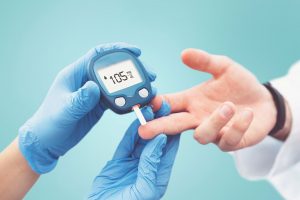
It can lead to difficulty thinking or focusing, leave you feeling fatigued, or experiencing an unquenchable thirst. It could also cause a person to faint.
Over time, extremely high blood sugar can increase the risk for heart and kidney disease, as well as nerve damage.
Along with medication, there are other things you can do to help keep blood sugar under control. Here are some tips to keep blood sugar from spiking and potentially reduce the risk of symptoms and chronic illness.
Have a Good Breakfast: Skipping breakfast can lead to massive sugar spikes after lunch and dinner. But it’s not just enough to eat breakfast; you need to eat the right things. Food like eggs, whole grains (toast/oats), fruit, and healthy fats (like nuts and nut butter) are the way to go.
Plan Snacks and Meals: Try staggering snacks and meals at intervals that will limit the ability of blood sugar going too high in either direction. Have meals roughly 4-5 hours apart and snacks 2-3 hours after meals.
Walk After Meals: A short leisurely 15-minute stroll after a meal can help bring blood sugar down, and keep it there for hours.
Limit Evening Carbohydrates: Blood sugar can be the hardest to control later in the day, so choosing low-carb dinners or evening snacks can be very useful. Look for evening eating to consist largely of fats, protein, and fibrous veggies.
This might seem like a bit of a challenge with the holidays coming. But with some effort, you can do it. If you need help to plan balanced meals or healthier snacks, talk to your doctor about what to eat.